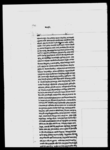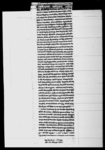A report from Lokaramaṇa Upādhyāya on his efforts to provide materials on a meeting between Raṇajit Siṃha and Lord Auckland to the palace and British reactions to an alleged Nepalese border infringement (VS 1897)
ID: DNA_0001_0068
Edited and
translated by Manik Bajracharya, Simon Cubelic, Rajan Khatiwoda
in collaboration with
Ramhari Timalsina
Created: 2016-07-19;
Last modified: 2022-11-04
For the metadata of the document, click here
The accompanying edition, translation/synopsis and/or commentary are available under the terms of the Creative Commons Attribution-ShareAlike 4.0 International License
Abstract
In this letter Lokaramaṇa Upādhyāya reports on his efforts in buying a British account on and a drawing of the meeting between Raṇajit Siṃha and Lord Auckland in 1838, testimonials from British officials on the alleged Nepalese border infringement, the unreliability of the Nepalese deputy-envoy and recent British troop movements.Diplomatic edition
[1r-part1]
1श्री५सर्कार१1⟪नं.६८⟫1अर्जि¯¯ ¯¯ ¯¯ ¯¯ ¯¯ ¯¯ ¯¯ ¯¯ ¯¯ ¯¯ ¯¯ ¯¯ ¯¯ ¯¯ ¯ ¯¯ ¯¯ ¯¯
2उप्रान्तश्रावणसुदि२रोज५कामितिमामहाराजारन्जितसिंहरलाठसाहवकाभे
3टमुलाकातभय़ाकोअस्वरन्साहवलेवनायाकोनक्सारवञान्कोकितावचाडो
4षरिदगरिचह्राइपठाउन्या कामगरभनिवक्सिपठायागयाकोलालमोहर
5भाद्रवदि१रोज६कादिनडाकमार्फत्पाइसीरचह्राञा•महाराजारन्जितसिं
6हरलाठसाहवसितमुलाकातभयाकोतसविरसवमजिलिस्समेतअस्वरन्सा
7हवचिनगय़ापछिउन्काअसवावलिलामहुदालिलाम्घर्मादेष्याथ्याँ•पैल्हे
8फर्माएसनहुदाषरिदगर्नसकिएनहुकुम्आयापछिञाहाकाअंरेज
9वंगालिदोकान्दारहेरुकादोकान्मातलासगर्याँपनिअरूतलासमालागि
10रह्याँछुअरुपाईय़ाकोछैनपाउन्यावित्तिकैहजुर्माचह्राइपठाउला•लाठसा
11हवकासाथपन्छाहवाटआय़ाकोसौगातकोअसवावभाद्रसुदि८कादिन
12लिलाममाविक्रिहुन्याछभन्न्याषवरसुनिन्छउस्दिनलिलामहुदापायाषरि
13दगरि•चह्राइपठाउला•हालसालतलासमाकाहीपाइयोभन्याषरिदगरिच
14ह्राईपठाउला•महाराजारन्जितसिंहर•लार्डअकलन्दकामुलाकातकावञान
15कोकिताव•षोज्दापाञिदैनअघिकालार्डविन्टिंसित•महाराजारन्जितसिं
16हकामुलाकातभयाकावञान्कोकितावठोपिप्रेन्सिप्साहवलेवनाइछपा
17य़ाकोतलासमापाइयो•षरिदगरिचह्राइपठाय़ाको छहजुर्मागुज्रला•ञाहा
18लडाइभिडाइकोहालसुरत्पाय़ाकोपैल्हेकाअर्जिमाविन्तिचह्राइपठाय़ाको
19हो•ञाहाअंरेजहरुसितमुलाकातहुदाअवस्यलडाइहुन्छभन्छन्•कदाचि
20त्• मसित•पेटराषिकुरागर्छन्किभनि•हाफिजअहमदकविरअर्विमदर्साका
21अमीन्लाइअभिन्तरवुझ्नभनिलाञाथ्याँउन्लेकुराकाप्रसंगमासोधपुछ
22गर्दा•नेपालकातरफ्वाटसाह्रैअचाकलिहुनलागिरहेछव़ल्किन्सन्साहव
23तिह्रउत्जिल्लाकाकलक्टर्लेएसजिल्लाकोसिव़ानानेपाल्कातरफ्वाट
24फौजआइ•दवाय़ाकोसुनिमनाहिगर्नभनिनाजिरलाइपठाञाथ्याँ•नमा
25निनाजिरलाइनिकालिदिसीव़ानादवाय़ाभन्न्याकौसल्मालेष्याकाचिठि
26ले•नेपाल्कातरफ्वाटसाह्रैअचाकलिहुनलाग्योभनिलाठसाहवसाह्रैदिक
27भयाकाछन्भनि•ठोपिप्रेन्सिप्साहव•तेश्राकौसलिले•हाफिजअहमदकवि
28रसितभन्याकाकुराउनलेमसितषसोषासवञानगर्या•कल्कत्ताकापुलि
29स्कासुपरिन्डन्टकफ्तानवचसाहवसितभेट़हुदावातचित्काप्रसंगमा
30नेपालसितसर्कार•कम्पनीकाअवस्यविग्रन्छमेरोपल्टन्वनारस्माछ
31मलाइपनिजानुभनिहुकुम्भय़ाकोछपल्टन्कुचहुन्याताकमामपनिय़ोका
32मछोडिआफ्नापल्टन्मासामेलहुनजाँलाभन्न्याकुरागर्या•हाम्रातलडाइको
33मन्सुवाथिएनकम्पनिकातर्फवाटषानषाअहदपैमानछोडिविग्रन्छौँभ
34न्याकावेलामाहाम्रातर्फवाटपनिविग्रनैपर्लासलुकदुवैतिरवाटराष्यारहन्छ
35एकैतिरवाटराषिरहदैनभनिमैलेभन्दातिमिहरूकातरफ्वाटअचाक्
36लिहुन्छहाम्राअंरेजकोपैल्हेआफुविग्रन्यादस्तुरहोइनजाहाताहासि
37वानामालस्करआइहाम्राकम्पनिकाजगामालुटपिटगरेरलैग्या•दोस्ति
38मायस्तोचाहिन्याहोक्यातवअरुपनिधेरैकुराछन्तिमिलाइतकेहिलेषि
39आवदो रहेनछतिमिकेहिथाहापाउदारहेनछौ•हिन्दुस्थानिकाएस्तै•वेवंदो
40वस्तहुनालेहामिलेअर्कावेलाएत्वाटआइहिन्दुस्थान्कोवेलाएतलिञ्यु
41भनिठट्टागर्याझैगरि•कुरागर्या•भय़ाकोविस्तारमलाइलेषिआउदैछ
[1r-part2]
42नभय़ाकोतिमिहरूकाहाकोजस्तोफैकिहाम्रामुलुकमालेषन्यादस्तुरछै
43नभनि•मैलेजव़ावदिञापाय़ाकोषवरविन्तिचह्राइपठाय़ाकोसाचोझु
44ठो•कसोहोकोजनिहजुर्माजाहेरैहोलाहजुरवाटकेहिलेषिनआउदाञा
45हाम•साह्रैअन्दाधुन्दमापरिरह्याछु•लडाइकोषवरसुन्याकादिनदेषि
46नाएवव़किलसितएकदिनभेटभय़ोथ्यो•लडाइअवस्यहुन्छगरेभन्न्या
47षवरसुनिन्छ•मताआफ्नाजिविकामालागिरह्याँछुतिमिपनिआफ्नु
48केहिवन्दोवस्तगर्न्याभय़ादेषिगरभन्थ्या•हाम्रातपुस्तानपुस्तादेषि¯ ¯१¯ ¯
49कातावेदाररैय़त्निमक्षारहुँहाम्रावन्दोवस्तकोउपदेसतिमिलेगर्नु
50पर्दैनलौभनिजव़ावदिञा•उहिलेदेषिफेरिमुलाकातभय़ाकोछैन•फेला
51पर्यालोकरमणउपाध्यापर्नन्हामिताअंरेजकाअमल्मापनिवादसाहकासह
52रभित्रकम्पनिकोहुकुम्नचल्न्याठाउमावस्याकाछौँहाम्रोकेहिविग्रन्या⟪छैन⟫भ
53न्न्या कुराआफ्नाइष्टमित्रहरुसितगर्छन्अरे•भन्दासुनिन्छ•एस्तावेलामा
54अभिन्तरवंगालीहेरूसितपेटपसिवातवुझ्नपठाउँभन्यापनिनाएवसितमु
55लाकातैहुदैनञाहाभय़ाकोहालसुरत्अर्जिविन्तिचह्राइपठायाकोछ•व्र
56ह्माकामुलुककासिव़ानामामौल्मिन्काछाउनीमारह्याकालस्कर्माएकपल्ट
57न्गोराले•दानापुरजानुभन्न्याकौसल्वाटहुकुम्गयो•इतिसम्वत्१८
58९७ ¯¯सालमितिभाद्रवदि ¯¯९रोज ¯¯६मोकामकल्कत्ताचि
59त्पुरशुभम्¯¯ ¯¯ ¯¯ ¯¯ ¯¯ ¯¯ ¯¯ ¯¯ ¯¯ ¯¯ ¯¯ ¯¯ ¯¯ ¯ ¯¯ ¯¯
60सेवकलोकरमणोपाध्यायकोवेदोक्त:पु
61राणोक्त:कोटिकोटिसुभासीर्वादशुभम्
Translation
[1r-part1]
Śrī 5 Sarkāra - 1
Number 681
Uprānta: I received on Friday, the 1st of the dark fortnight of Bhādra, the lālamohara dispatched on Thursday, the 2nd of the bright fortnight of Śrāvaṇa, which stated: "Buy and send promptly the drawing prepared by Osborne Sāhaba2 of the meeting between Mahārājā Raṇajit Siṃha and Lāṭha (Lord) Sāhaba3 and his book [containing] a description of it."4 I thereupon bowed my head. I saw the drawing of the meeting between Mahārājā Raṇajit Siṃha and Lord Sāhaba together with the entire assembly (majilis) during auctioning of the possessions of Osborne at the auction house after he had left for China.5 I could not buy it earlier since I was not ordered [to do so]. After receiving your order, I have been searching [for it] at shops belonging to the English and the Bengalis, and at other places. However, another [copy] has not been found yet. I will send one to Your Excellency as soon as I find one. News is being heard that the articles received as presents from Punjab by Lord Sāhaba willl be sold by auction on the 8th of the bright fortnight of Bhādra. I will buy and send [the drawing] if I find it at the auction. If I find it within these days during the search, I will send it. The book containing the description of the meeting between Mahārājā Raṇajit Siṃha and Lord Auckland has not been found while searching. [However,] the book containing the description of the meeting between the former Lord Bentinck6 and Mahārājā Raṇajit Siṃha which was prepared and published by Thoby Prinsep7 has been found. It has been bought and dispatched. It will reach Your Excellency.
In my earlier letter, I sent news received regarding war. During [my] meetings with the British here, they say there will certainly be war. Thinking for some reason that they may have been talking to me less than forthrightly, I deputed Hāphija Ahamada Kavira8 of the Arabian madrasa to learn [their] secrets. He described to me accurately what Thoby Prinsep, the third counsellor, had told him in the course of conversations: "There has been a great deal impropriety from the Nepalese side. Lord Sāhaba has been very distressed because of a letter to the Council written by Wilkinson Sāhaba9 , the collector of Tirhut, stating: 'After hearing that the Nepalese army was encroaching [the land beyond] this district's border, I sent a nājīra to put a stop [to this]. They didn't agree, expelled the nājīra, and kept on encroaching.'"
When I met Captain Birch Sāhaba10 , the Superintendent of Calcutta Police, he said to me in the course of conversation, "The relationship between Nepal and the Company government will certainly be spoilt. My regiment is in Benares, and I too have been ordered to go there. Once the regiment is deployed, I too will join it, leaving this job."
"It is not our intention to engage in war. If the agreement is breached from the Company's side without any reason, we shall breach it from our side too. Proper conduct will endure if it is maintained on both sides; it cannot be maintained only on one side." When I said this, Captain Birch replied as if in jest: "There has been impropriety on your side. It is not the custom of us English to breach [an agreement] first. Your troops came and made off with spoils all along the border in our Company's territory. Is such a thing proper in friendship? There are several other matters too. It seems that nothing has been written to you, and you know nothing. Because of such mismanagement on the part of Hindustanis, we have come from another country (belāyata) and have taken the country of Hindustan."
[1r-part2]
I replied to him: "Real information has [always] arrived to me in writing. Unlike where you come from, we do not have the custom of writing false [information] in our country."The truthfulness or falseness of the news that I have obtained and sent to you will certainly be known to Your Excellency, the compassionate one. I have remained in the dark here with no letters arriving from Your Excellency. I have met the deputy vakila11 [only] once since the day I [first] heard of war. He said: "News has been heard that there will certainly be war. I have been looking after my own livelihood. If you have any arrangements yourself to make, do so." I replied to him: "We have been loyal servants and subjects of the -1- (i.e., fivefold glorious king) for generations. There’s no need to teach me about my arrangements." I have not met him since then. It is heard that he tells those closest to him: "If anyone is trapped, it’s Lokaramaṇa Upādhyā. Even though we’re in British territory, we’re living inside the city of the Emperor, where Company authority does not hold sway. We will not be harmed." In this situation, even if I wanted to send him to sound out Bengalis for their secrets, the deputy is nowhere to be met. The current news from here has been sent to [Your Excellency].
A regiment of white soldiers from the army stationed at the Maulmin12 Barracks on the border of the Kingdom of Burma has been ordered by the Council to proceed to Dānāpura.13
Friday, the 9th of the dark fortnight of Bhādra in the [Vikrama] era year 1897 (1840 CE). Residence: Chitpur, Calcutta. Auspiciousness.
Crores and crores of auspicious blessings from [your] servant Lokaramaṇa Upādhyāya as uttered in the Vedas and Purāṇas. Auspiciousness.
Commentary
This report refers to two crucial events involving Nepalese foreign policy during the late 1830s and early 1840s. The first one pertains to the Anglo-Sikh rapprochement on the eve of the First Anglo-Afghan War (1839–1842). The meeting between the Sikh ruler Maharāja Raṇajit Siṃha and Governor General Lord Auckland mentioned in this document refers to their jointly held darabāra at Firozpur on 29 November 1838. This darabāra was one outcome of the tripartite treaty of 26 June 1838 signed between the East India Company, Raṇajit Siṃha and Shah Shuja, according to which the last-named was to be placed on his ancestral Afghan throne with British and Sikh assistance (Riddick 2006: 42). This treaty was a major setback for Nepal since the Sikh empire was a decisive building block in the Nepalese attempt to forge an anti-British alliance comprising Iran, Afghanistan, the Sikh Empire, several other Indian states and Burma, and—during the First Opium War (1839–1842)—even China (Rose 1971: 98–100; Mojumdar 1973: 28ff.). Therefore, it is obvious why Lokaramaṇa was supposed to collect all available information on this darabāra. The second event very probably refers to the deterioration of Anglo-Nepalese relations in the aftermath of the Ramnagar incident, which brought both countries to the brink of war, as summarised in Stiller 1981: 5ff. as follows. On 21 June 1840 Nepalese troops stationed at Someshwar infiltrated the Ramnagar area of northern Bihar, in the course of which they harmed British subjects. With this move the Nepalese government was trying to press its claim to that land after the demise of the heirless ruler of Ramnagar, on the basis that it had been given to a Gorkhali princess as dowry. However, the British regarded themselves as the rightful claimants since the land was within their territory. The British demanded not only a complete withdrawal of the Nepalese troops but also an official renouncement of all claims to that territory, punishment of the infiltrating soldiers and 5,000 rupees compensation. Eventually King Rājendra submitted to the demands of the Company government. Finally, besides political rivalries the document bears testimony to rather personal ones. As in previous reports Lokaramaṇa Upādhyāya is at pains to denounce his deputy Madanamohana Tevārī. Whereas in DNA_0005_0028 and DNA_0001_0075 Lokaramaṇa depicts Madanamohana as sluggish and incompetent, and here he is even portrayed as unreliable and without a sense of duty.


